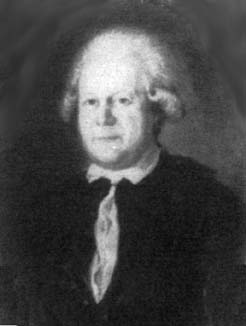

تاريخ الرياضيات

الاعداد و نظريتها

تاريخ التحليل

تار يخ الجبر

الهندسة و التبلوجي


الرياضيات في الحضارات المختلفة

العربية

اليونانية

البابلية

الصينية

المايا

المصرية

الهندية


الرياضيات المتقطعة

المنطق

اسس الرياضيات

فلسفة الرياضيات

مواضيع عامة في المنطق


الجبر

الجبر الخطي

الجبر المجرد

الجبر البولياني

مواضيع عامة في الجبر

الضبابية

نظرية المجموعات

نظرية الزمر

نظرية الحلقات والحقول

نظرية الاعداد

نظرية الفئات

حساب المتجهات

المتتاليات-المتسلسلات

المصفوفات و نظريتها

المثلثات


الهندسة

الهندسة المستوية

الهندسة غير المستوية

مواضيع عامة في الهندسة

التفاضل و التكامل


المعادلات التفاضلية و التكاملية

معادلات تفاضلية

معادلات تكاملية

مواضيع عامة في المعادلات


التحليل

التحليل العددي

التحليل العقدي

التحليل الدالي

مواضيع عامة في التحليل

التحليل الحقيقي

التبلوجيا

نظرية الالعاب

الاحتمالات و الاحصاء

نظرية التحكم

بحوث العمليات

نظرية الكم

الشفرات

الرياضيات التطبيقية

نظريات ومبرهنات


علماء الرياضيات

500AD

500-1499

1000to1499

1500to1599

1600to1649

1650to1699

1700to1749

1750to1779

1780to1799

1800to1819

1820to1829

1830to1839

1840to1849

1850to1859

1860to1864

1865to1869

1870to1874

1875to1879

1880to1884

1885to1889

1890to1894

1895to1899

1900to1904

1905to1909

1910to1914

1915to1919

1920to1924

1925to1929

1930to1939

1940to the present

علماء الرياضيات

الرياضيات في العلوم الاخرى

بحوث و اطاريح جامعية

هل تعلم

طرائق التدريس

الرياضيات العامة

نظرية البيان
Erland Samuel Bring
المؤلف:
A P Youschkevitch
المصدر:
Biography in Dictionary of Scientific Biography
الجزء والصفحة:
...
23-3-2016
1019
Born: 19 August 1736 in Ausas, Kristianstad, Sweden
Died: 20 May 1798 in Lund, Sweden

Erland Bring studied at Lund from 1750 to 1757. He then taught history at Lund, becoming a reader in 1762 and a professor in 1779. There are eight volumes of his hand written mathematical work on various questions in algebra, geometry, analysis and astronomy preserved in the library at Lund.
His most famous work Meletemata quaedam mathematematica circa transformationem aequationum algebraicarum (1786) was published at Lund. This work describes Bring's contribution to the algebraic solution of equations.
Bring discovered an important transformation to simplify a quintic equation. It enabled the general quintic equation to be reduced to one of the form
x5 + px + q = 0.
The transformation was later discovered independently and generalised by Jerrard in 1832-35. By the time Jerrard discovered the transformation, Ruffini's work and Abel's work on the impossibility of solving the quintic and higher order equations had been published. However, at the time of Bring's discovery, there was no hint that the quintic could not be solved by radicals and, although Bring does not claim that he discovered his transformation in an attempt to solve the quintic, it is likely that this is in fact why he was examining quintic equations.
Articles: